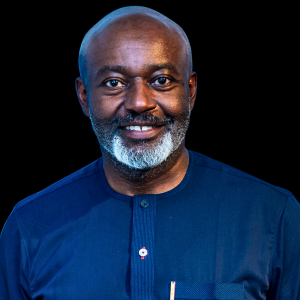Statement by the United Nations Resident Coordinator on International Human Rights Day
10 December 2023
We must chart a way towards a human rights-based economy that reduces inequality. Service delivery must be equitable and inclusive, reaching those furthest behind first.
Seventy-five years ago, world leaders united to chart a path towards a more just, equal, and peaceful world following two devastating world wars. Death and destruction birthed the Universal Declaration of Human Rights (UDHR), an international document adopted by the United Nations General Assembly that enshrines the rights and freedoms of all human beings.
International Human Rights Day on 10 December commemorates the adoption of the UDHR in 1948. In South Africa, it also marks the signing into law of the Constitution in 1996. Merging the two commemorations was a global symbol by Nelson Mandela to demonstrate that as United Nations member states forged the UDHR from brutal conflict, similarly, the South African Constitution could unite a country emerging from a violent past.
Since their adoption, the UDHR and the Constitution have catalysed socio-economic and political transformation and a legally binding system to protect human rights.
South Africa will hold its seventh national and provincial elections in 2024, a testament to 30 years of democratic rights for all.
The rights of women, children, persons with disabilities and migrants are inscribed in law. Discrimination has been prohibited on several grounds and the indivisibility of social, economic and cultural rights and civil and political rights upheld.
Yet, while millions of people enjoy the universal rights and freedoms guaranteed by the UDHR, they are still far from the lived experience of many.
Globally, poverty has risen for the first time in 20 years.
Inequality is rising between and within countries.
South Africa is no exception. The country is ranked the most unequal in the world. Unemployment remains high, with young people bearing the brunt.
Rape, sexual assault and femicide remains a scourge.
Severe flooding, due to changing climate patterns, claimed hundreds of lives in parts of the country and forced thousands to leave their homes.
As we commemorate Anti-Corruption Day on 9 December, more effort is also needed to address service delivery, corruption and maladministration and trust in public institutions.
These persistent and new challenges require a recommitment to human rights.
Just as states turned to human rights 75 years ago to guide them out of conflict and despair, today, with less than seven years to the deadline for achieving the Sustainable Development Goals, our transformative and accelerated actions leading up to 2030 must be grounded on human rights.
Governments, civil society, and the private sector must put human rights at the centre of all efforts to solve persistent challenges.
We must chart a way towards a human rights-based economy that reduces inequality. Service delivery must be equitable and inclusive, reaching those furthest behind first.
We need to invest in the prevention of sexual and gender-based violence and ensure justice for survivors and victims.
Young people must be at the decision-making table, bringing their insights and innovation to solve critical challenges.
On this 75th anniversary of the UDHR, we call on everyone to heed the call of “freedom, equality and justice for all”. Let us each do our part to make universal human rights a living reality for everyone, everywhere.

Prior to his appointment as United Nations Resident Coordinator, Nelson Muffuh served as Chief of Staff and Principal Strategic Adviser to the UN Deputy Secretary-General since 2017. He led the overall management and guidance of staff, focusing on the acceleration of systemwide and whole-of-society efforts on the Sustainable Development Goals (SDGs) and on the repositioning the UN development system and strengthening the Resident Coordinators system.
As lead strategic adviser and policy coordinator on sustainable development political and partnerships interventions, Mr. Muffuh helped shape and advance the UN’s comprehensive response to the COVID-19 pandemic, advocate and organize summits on the SDGs, Financing for Development, and Climate Action. He was instrumental in convening and coordinating the efforts of launching the Spotlight Initiative on violence against women and girls, the Decade of Action for the delivery of the Sustainable Development Goals by 2030, and the Global Crisis Response Group to address the impacts on food, energy, and finance due to the war in Ukraine.
Prior to this, Mr. Muffuh led and coordinated stakeholder engagement, outreach, and global strategic partnerships efforts to inform the post-2015 development policy process, whose outcome was the 2030 Agenda for Sustainable Development and its accompanying SDGs to succeed the Millennium Development Goals.
Nelson Muffuh started his UN career with the UN Development Programme-UN Millennium Campaign, then UN Population Fund in Africa, where he acquired extensive experience in programme management, multistakeholder collaborative interventions, partnerships and communications, as well as advocacy and mobilization. Before that, he served as a Senior Programme and Advocacy Advisor for Christian Aid, and Programme Coordinator for the African Liberal Network-Westminster Foundation for Democracy and Transparency International Secretariat.
Mr. Muffuh studied political science and international relations at Freie Universität Berlin, Germany, and development cooperation at Sussex University, United Kingdom.
He is married and has two children.



